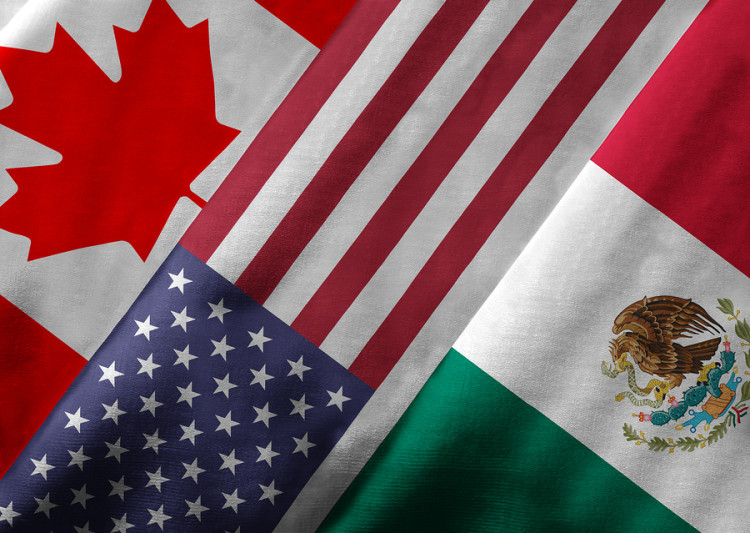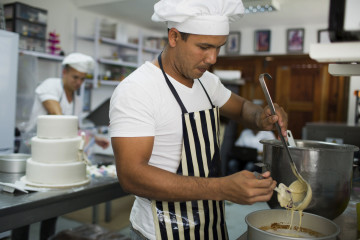Trump’s New Nafta Deal to Be Signed on Friday as Hurdles Remain

published Nov 29, 2018, 5:56:58 PM, by Josh Wingrove, Jenny Leonard and Eric Martin
(Bloomberg) —
The U.S., Canada and Mexico will sign their new trade deal Friday following a year of intense negotiations to revamp the continent’s free trade zone — and after President Donald Trump’s threats to kill it.
The countries plan to ink the U.S.-Mexico-Canada Agreement in Buenos Aires at the start of the Group of 20 summit, three officials familiar with the matter said, speaking on condition of anonymity. Leaders from the three countries will be present for the ceremony, though it’s unclear whether the heads of state will sign the document or cabinet-level officials.
Putting pen to paper will bring some certainty at a time of unease over global trade tensions, and be held up as an example of Trump-era deals as he prepares to meet China’s Xi Jinping at the G-20. The world’s two biggest economies are embroiled in an escalating trade war.
Several hurdles remain. The agreement needs ratification to take effect, almost certainly by the next U.S. Congress. Some parts will kick in immediately, such as a deal exempting Canada and Mexico from U.S. auto tariffs. The fine print is still being tweaked, and Canada and Mexico remain at odds with the U.S. over tariffs on steel and aluminum.
The pact would update a 1994 deal between the countries, which trade more than $1 trillion annually.
“As is always the case with these agreements, there are always details to be finalized and we are very hard at work doing that,” Canada’s Foreign Minister Chrystia Freeland told reporters on Thursday in Buenos Aires. “We’re just being sure that all the Is are dotted, all the Ts are crossed.”
Trump, Canadian Prime Minister Justin Trudeau and outgoing Mexican President Enrique Pena Nieto are all at the G-20, though none has publicly confirmed they’ll be the ones to sign. The nations had been rushing to have the pact inked by Friday — Pena Nieto’s last day in office. It’s possible ministers could sign, one person said.
Matt Pascuzzo, a spokesman for Trudeau, confirmed on Thursday evening that the prime minister would be present for the event at 9 a.m. local time, or 7 a.m. Eastern time, joined by Trump and Pena Nieto.
Canada struck a deal with the U.S. on Sept. 30 to avoid the U.S. and Mexico proceeding without it. It overhauls rules affecting wide swaths of the economy — requiring more high-wage content in auto manufacturing, opening Canada’s protected dairy market and allowing more duty-free shipments into Canada and Mexico.
Lawyers for the countries are still finalizing and translating the text of the agreement, a process known as a legal scrub.
Two Canadian officials, speaking on condition of anonymity, said it’s normal at this stage for that process to be ongoing. One said it could continue for weeks after the signing. Under U.S. trade law, the Trump administration has to submit the final text of the deal to Congress at least 30 days before it can send legislation that U.S. lawmakers would need to vote on to ratify USMCA.
The tariff fight remains a key nuisance. The U.S. imposed tariffs of 25 percent on steel imports, and 10 percent on aluminum imports, from both countries earlier this year as part of Trump’s trade agenda. Canada and Mexico retaliated with penalties of their own on billions of dollars worth of U.S. products.
The U.S. has been pushing both countries to accept a quota in exchange for lifting the tariffs; Mexico, which is a smaller supplier of the metals to the U.S., might be willing to agree to quotas like those applied to South Korea, though that decision looks likely to fall to the new government, one person said. Canada has demanded the removal of all tariffs the nations have placed on each other.
Failing to remove the tariffs “will significantly dampen enthusiasm for this deal, and could lead to opposition from many agricultural and manufacturing interests, said Rufus Yerxa, president of the National Foreign Trade Council in the U.S. “For sectors like autos, dairy and pork, the costs of the steel and aluminum tariffs and the retaliation far outweigh the benefits of this new deal.”
Extra Hurdle
A dozen Republican senators are pushing for a vote in Congress this year before the Democrats take over the majority in the House of Representatives in January. A Democratic-controlled House is widely seen as adding an extra hurdle for the agreement as lawmakers could delay a vote on one of Trump’s signature achievements by trying to extract unrelated concessions from the White House.
But Senate Majority Leader Mitch McConnell and Finance Committee Chair Orrin Hatch have ruled out a vote for 2018, calling it unrealistic given the outstanding procedural steps and the packed legislative agenda for the remaining weeks of the year.
There have been calls for Mexico and Canada to hold off on signing until the U.S. tariffs are lifted, though there’s little sign that’ll happen. For the Canadians, “the gamble is if the Americans decide in a way to call our bluff and not do anything, then what do we do?” said Patrick LeBlond, a senior fellow at the Centre for International Governance Innovation, based in Waterloo, Canada. “We have a lot to lose if the whole thing unravels.”
To contact the reporters on this story: Josh Wingrove in Ottawa at jwingrove4@bloomberg.net ;Jenny Leonard in Washington at jleonard67@bloomberg.net ;Eric Martin in Mexico City at emartin21@bloomberg.net To contact the editors responsible for this story: Vivianne Rodrigues at vrodrigues3@bloomberg.net ;Rosalind Mathieson at rmathieson3@bloomberg.net
COPYRIGHT
© 2018 Bloomberg L.P







No Comment